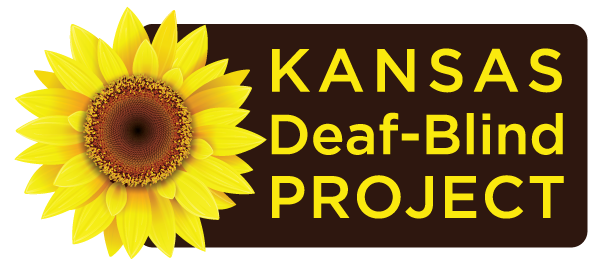About Us
The term “deaf-blind” refers to individuals who experience BOTH vision and hearing loss. Severity differs from one child to another. Deaf-blindness is in the lowest of low incidence disability. It requires a unique approach to learning and multiple ways to access information.
The combined effects of both of these sensory losses may make the student eligible for services even if both are mild. If you know of a child who experiences both vision and hearing loss, we encourage you to contact our Project today. You are not alone. The KSDB Project is here for you.
Our Team
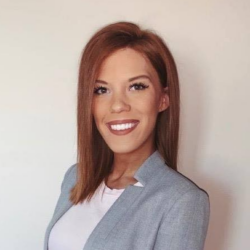
Katie Kirchhoff
Project Director
kkirchhoff@kssdb.org
(913)-375-5239
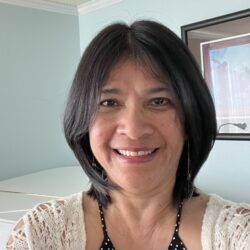
Joy Gabel
Data Specialist
cgabel@kssdb.org
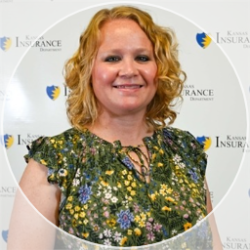
Lisa Colette B.A.
Family Engagement Coordinator
lcollette@kssdb.org
785-806-4241
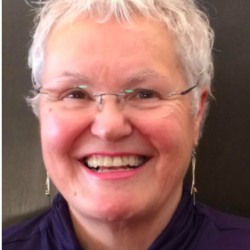
Kathee Scoggin, M.Ed.
Deaf-Blind Consultant
katheescoggin@gmail.com
Our Advisory Council
The KSDB Project maintains an Advisory Council that is diverse, representing different regions, state agencies, schools, and professions. Our council members offer feedback on materials, products, or events and provide guidance or expert advice in specific areas as needed. The members of the council are representative of each of our Project goals:
- Provide technical assistance and training on improving outcomes to personnel serving students with deaf-blindness.
- Increase identification and referral of young children
- Facilitate literacy and numeracy by promoting access to the general education curriculum and grade-level content standards.
- Provide support to learners and their families during the transition to postsecondary education or employment.
- Increase support to families to facilitate their involvement in education and transition opportunities
- Track learners with deafblindness and maintain an annual child count for KS
|
|||||||||||||||||||||||||||||||||||||||
Our Partners
The CHARGE Syndrome Foundation – The mission of the CHARGE Syndrome Foundation is to lead and partner to improve the lives of people with CHARGE syndrome locally, nationally, and internationally through outreach, education, and research.
Families Together – Families Together, Inc. is a nonprofit organization serving children and youth with disabilities throughout the state of Kansas. Families Together, Inc. also serves as the Parent Training and Information Center for Kansas.
Helen Keller National Center, Great Plains Regional Office – The HNKC Great Plains Regional Offices bring HKNC resources to you. The regional representative knows all about the programs and services available to deaf-blind individuals, their families, and service providers in each state and beyond and can help individuals find and access the right ones. For more information, contact: Beth Jordan, M.Ed., CRC.
Email: bjordan@helenkeller.org Voice: 913-677-4562 VP: 913-227-4282
Kansas Council on Developmental Disabilities (KCDD) – The KSDB Project partners with KCDD in providing guardianship and supported decision-making workshops and training of Charting the LifeCourse Framework for Person-Centered Planning and transition support.
Kansas Department of Health and Environment: Infant-Toddler Program Kansas Infant-Toddler Services (authorized by the Individuals with Disabilities Education Act – IDEA Part C) is administered by the Kansas Department of Health and Environment (KDHE). KDHE provides grants to local networks to assist in maintaining and implementing a statewide system of coordinated, comprehensive, multidisciplinary early intervention services for infants and toddlers with disabilities (birth through 2) and their families. KDHE is responsible for assuring availability to eligible children and their families, excluding those at-risk
Kansas Department of Health and Environment: Special Health Care Needs. The Kansas Special Health Care Needs (SHCN) Program promotes the functional skills of persons who have or are at risk for a disability or chronic disease. The program is responsible for the planning, development, and promotion of the parameters and quality of specialty health care in Kansas in accordance with state and federal funding and direction. SHCN provides specialized medical services to infants, children, and youth up to age 21 who have eligible medical conditions. Additionally, the program provides services to persons of all ages with metabolic or genetic conditions screened through Newborn Screening. Services may include diagnostic evaluations, treatment services, or care coordination and must be prior authorized.
Kansas Department of Education – The purpose of the Early Childhood, Special Education, and Title Services (ECSET) is to provide effective, evidence-based technical assistance to districts and schools across the state. Educational Service Centers provide support and services for an appropriate education for exceptional students in specific regions within Kansas. Special education programs serve students whose unique learning needs cannot be met without additional intervention. These students require specially designed instruction to enable them to progress within the general education environment and/or receive an educational benefit from instruction.
Kansas Instructional Resource Center KIRC maintains an up-to-date collection of braille and large print textbooks, specialized equipment, and professional resources supporting parents, Teachers of Students with Visual Impairments (TSVIs), and education facilities working with qualified students in obtaining educational goals. Through annual APH Quota funds, and a repository textbook and equipment library, available items are loaned at no cost to those working with eligible learners. Materials are loaned on a “school year” basis but may be renewed as needed. When items are no longer needed, those materials and locally purchased textbooks are returned to KIRC and made available to others.
Kansas School for the Deaf Every student who is Deaf or Hard of Hearing in Kansas will achieve personal success and become a responsible citizen—this is KSD’s vision. Individuals throughout Kansas, aged birth to 21, who are Deaf, or Hard of Hearing, deserve quality outreach services, resources, and support.
Kansas State School for the Blind The Kansas State School for the Blind’s vision is “The right help, at the right time, in the right location.” KSSB is the home of the Kansas Deaf-Blind Project, a key component of our Field Services Department that provides statewide outreach to students in Kansas aged 0-21 who are Blind, Visually Impaired, or Deaf-Blind.
National Center on Deaf-Blindness NCDB is part of a network of projects for children and youth with deaf-blindness (birth through 21) that includes state deaf-blind projects in every state and Puerto Rico, the District of Columbia, the Pacific Basin, and the Virgin Islands. We are funded by the U.S. Department of Education.
National Family Association for the Deaf-Blind The National Family Association for Deaf-Blind (NFADB) is the largest national nonprofit organization empowering families with individuals who are Deaf-Blind.
Usher Syndrome Coalition. The Usher Syndrome Coalition’s mission is to raise awareness and accelerate research for the most common genetic cause of combined deafness and blindness. The Coalition also provides information and support to individuals and families affected by Usher Syndrome. For information, please email info@usher-syndrome.org. Toll-free 1-855-998-7437 (1-855-99-USHER) Option 0
